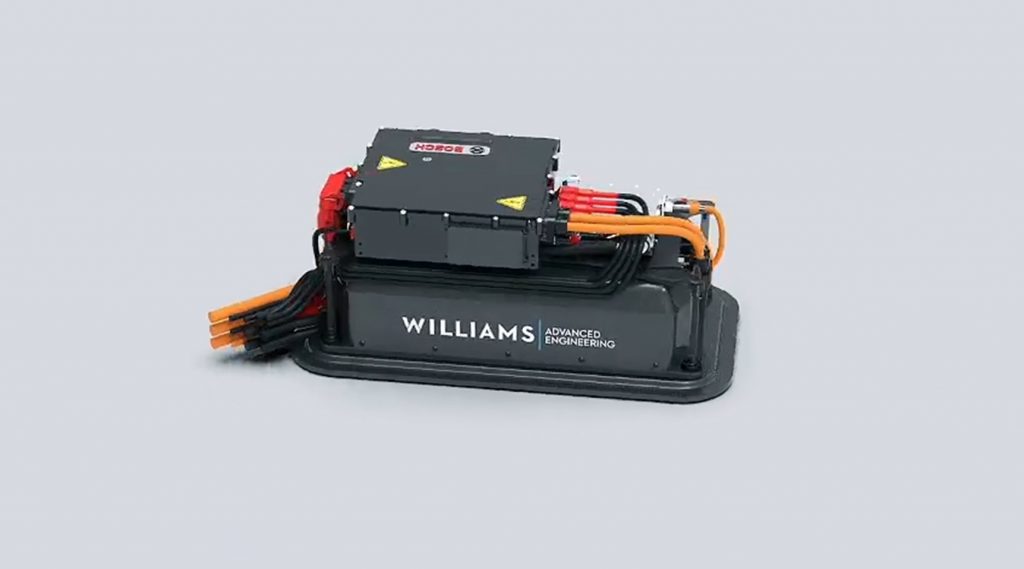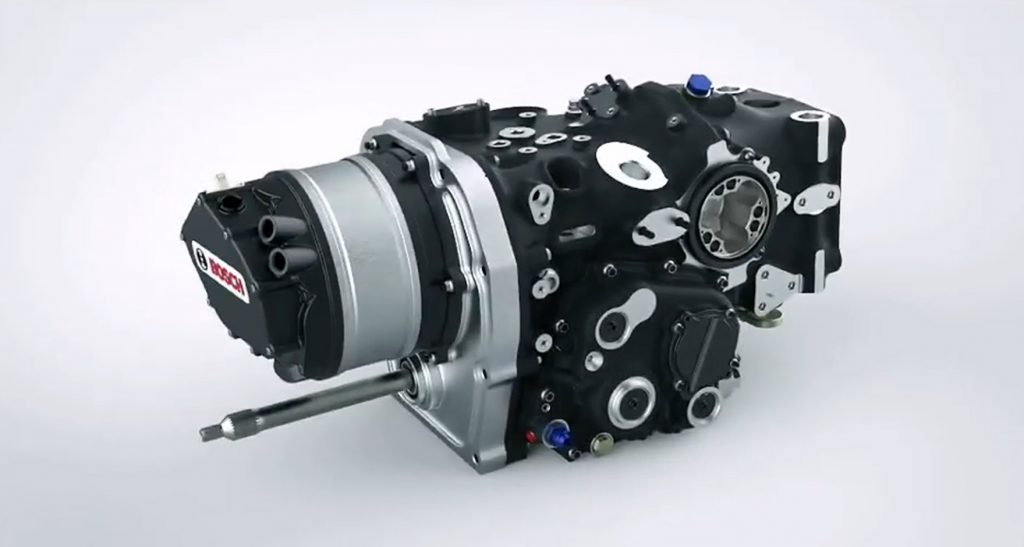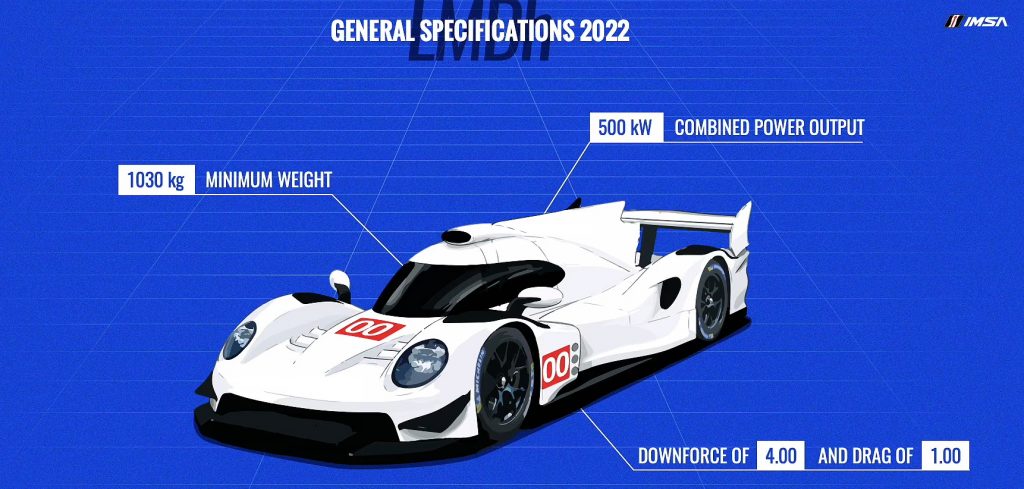With the traditional Le Mans 24 Hours press conference came the announcement that the LMDh class, based on chassis from the four approved LM P2 manufacturers, Dallara, Oreca, Mulitmatic and Ligier, will feature a spec hybrid system.
The hybrid system will be supplied by a collaboration of Bosch, Williams Advanced Engineering and Xtrac. LMDh will run in parallel to cars built to the LMH (Le Mans Hypercar) regulations and will be eligible to compete both in IMSA events and for the overall win at Le Mans, in the ‘Hypercar’ category. These cars will be fitted with manufacturer-designed bodywork and branded engines (be they bespoke racing units or production car sourced).
Bosch will supply the (40kW) motor generator unit, which will attach to the front face of the Xtrac transmission, within the bellhousing (which will be unique to each engine installation), while the battery system and control electronics, from Williams, will install from underneath the chassis.
The overall output of an LMDh car’s IC engine and hybrid system will be capped at 500kW, in line with the power limitations on LMH cars. However, there could be a potential performance advantage for the latter, given the ability to deploy up to 200kW through the front axle, rather than just the rear.
Costs will be capped at €345,000 (US$409,000) for the chassis, while the season running cost (on a lease basis) for the hybrid system will be under €300,00 (US$365,000). The predicted total season cost for an LMDh car, without engine, will be in the region of €1m (US$1.2m). According to John Doonan, president of IMSA, this relatively low cost has attracted expressions of interest in the class from over a dozen manufacturers.





